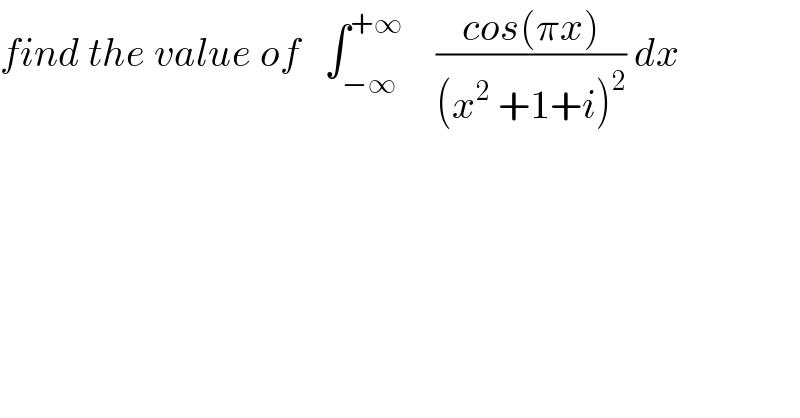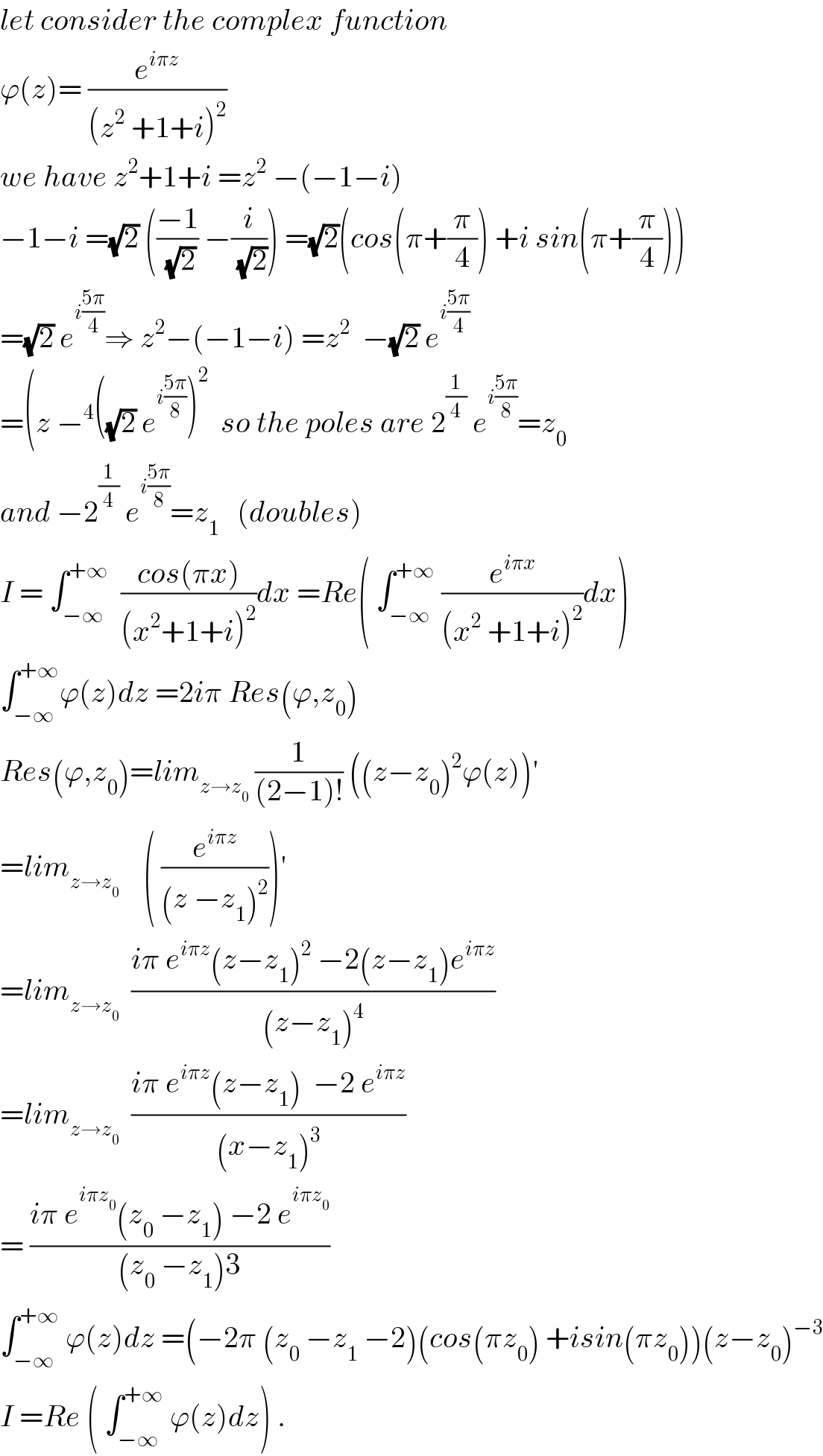
Question and Answers Forum
Question Number 33835 by prof Abdo imad last updated on 25/Apr/18

Commented by prof Abdo imad last updated on 29/Apr/18

| ||
Question and Answers Forum | ||
Question Number 33835 by prof Abdo imad last updated on 25/Apr/18 | ||
 | ||
Commented by prof Abdo imad last updated on 29/Apr/18 | ||
 | ||